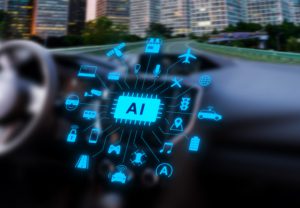
Syntax, Semantics…Say What?
There are countless debates whether Artificial Intelligence is really “intelligent”, and then what “intelligent” really means. Some of these debates gravitate towards discussions on syntax and semantics.
Like you, we deeply care about the safety and security of our loved ones as they live, move and interact in a world dominated by highly complex and interconnected electronics and software. We have made it our company’s core mission to educate and support industry partners like you to meet state-of-the-art industry standards like ISO 26262 and ISO/SAE 21434 to create a responsibly safe and secure world together.
Every functional safety or cybersecurity risk management and compliance journey is different. Each one is shaped around an organization’s starting point, circumstances, constraints and goals. Therefore, we will approach your program with an open mind to get a holistic understanding of your ISO 26262 and ISO/SAE 21434 risk landscape by evaluating product development processes, product design artifacts, stakeholder interactions, and your near and long-term goals. Subsequently, we will work collaboratively with your team to develop technical solutions and counter-measures to meet these goals.

Our team is dedicated to helping organizations across industries develop the highest levels of safety and security for their critical systems and processes.

Our EV engineering services drive the future of sustainable mobility, offering cutting-edge solutions to design, develop, and optimize electric vehicles for efficiency, performance, and environmental responsibility.
We won’t just stop there – we will be highly committed to helping you strengthen and innovate your product development processes, using lessons learned and methods developed together during our collaboration.
We perform a detailed Gap Analysis of our Client’s development processes and products against ISO 26262 and ISO/SAE 21434 for a specific program.
We perform a detailed Gap Analysis of our Client’s development processes and products against their desired compliance goals for a specific program.
We develop a practical action plan with our Client and work collaboratively to address gaps with knowledge sharing, technical solutions and counter measures to effectively achieve program goals.
We equip and work closely with our Client to prioritize and proactively address mission-critical and immediate risks that are discovered during the gap analysis.
We create lasting impacts for you by helping integrate process improvements, technical solutions and lessons learned for your program to optimize your product development framework.
This step allows us to get a foundational understanding of your product development processes and interfaces with external stakeholders/ partners with the help of a multiple-choice ‘discovery questionnaire’.
Your responses to the discovery questionnaire enables us to organize an effective virtual gap analysis workshop with your key management stakeholders to get a deeper understanding of your organization’s circumstances, challenges and goals.
The final step involves a highly tailored “due diligence” style gap analysis workshop with your engineering team to get a comprehensive understanding of the maturity of your product development processes, product design/ technical documentation and compliance evidence against the expectations in standards and regulations to meet your organization and/or program-specific compliance goals.
Within two weeks of completing this step, we will present our gap analysis report with findings and recommendations in presentation format, along with an executive summary. We will highlight mission-critical and immediate risks, if any, to enable a proactive response from our client.
We bring decades of hands-on automotive product development experience and an in-depth understanding of automotive standards to benefit your program. We offer a combination of safety and cybersecurity management support, process definitions and tailoring guidance, and most importantly, collaborative development of high quality technical work products to meet the demands of state-of-the-art automotive standards, including but not limited to, ISO 26262 (Automotive Functional Safety), ISO 21448 (Safety Of The Intended Functionality), ISO 21434 (Automotive Cybersecurity), and ISO/PAS 8800 (Safety and Artificial Intelligence in Automotive).
We are highly motivated to get compliance right the first time for your organization and your program, and to build up your team along the way for self-sufficiency on future programs. Whether you are a well established organization or a new entrant into the automotive industry, we are committed to making you competitive in the near-term and resilient in the long-term with consulting services across three pillars:
Let us know about your project and our team will be in contact

There are countless debates whether Artificial Intelligence is really “intelligent”, and then what “intelligent” really means. Some of these debates gravitate towards discussions on syntax and semantics.

Back in 2020 we would have never thought that a semiconductor manufacturer would be almost five times as valuable as the world’s biggest retail chain.

The ISO/IEC 5469:2024 standard was released in January of 2024, and, unlike ISO/CD PAS 8800, it is not specific to just automotive.
We’re here to provide the guidance and support you need to navigate the complexities of engineering with responsibility and safety at the forefront.

info@sres.ai
How Can We Help You!
